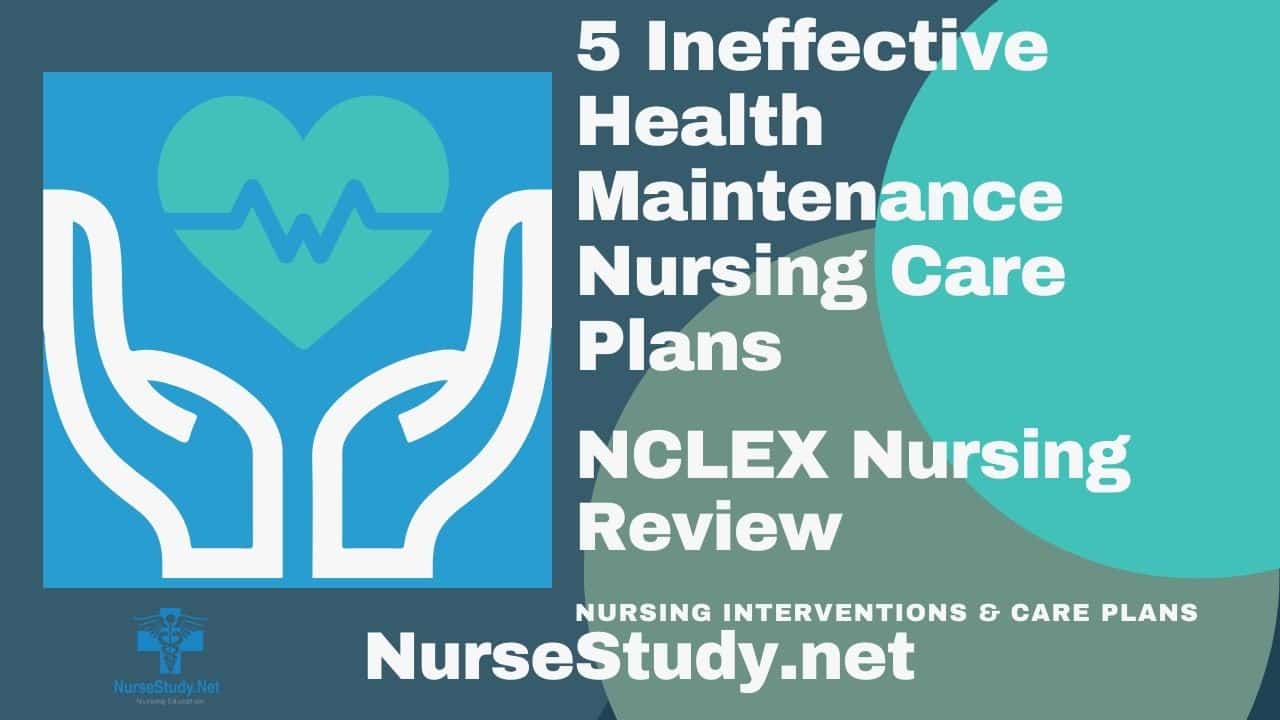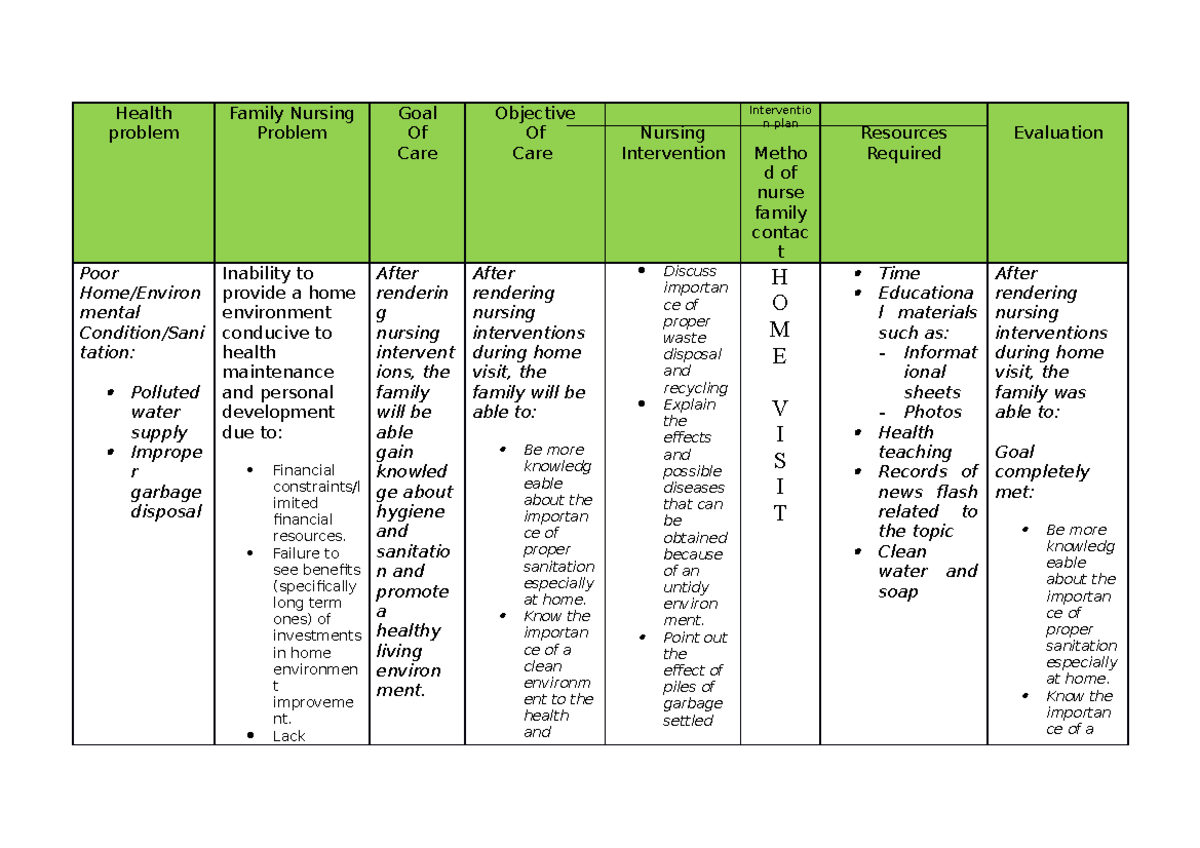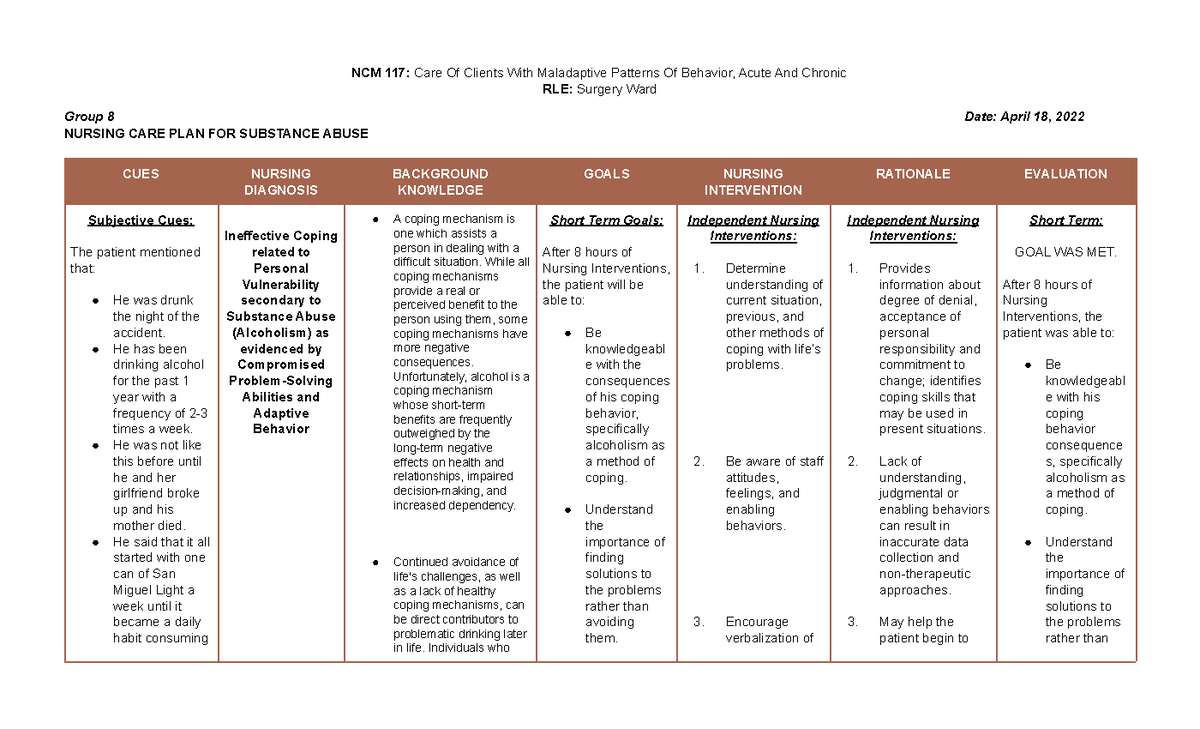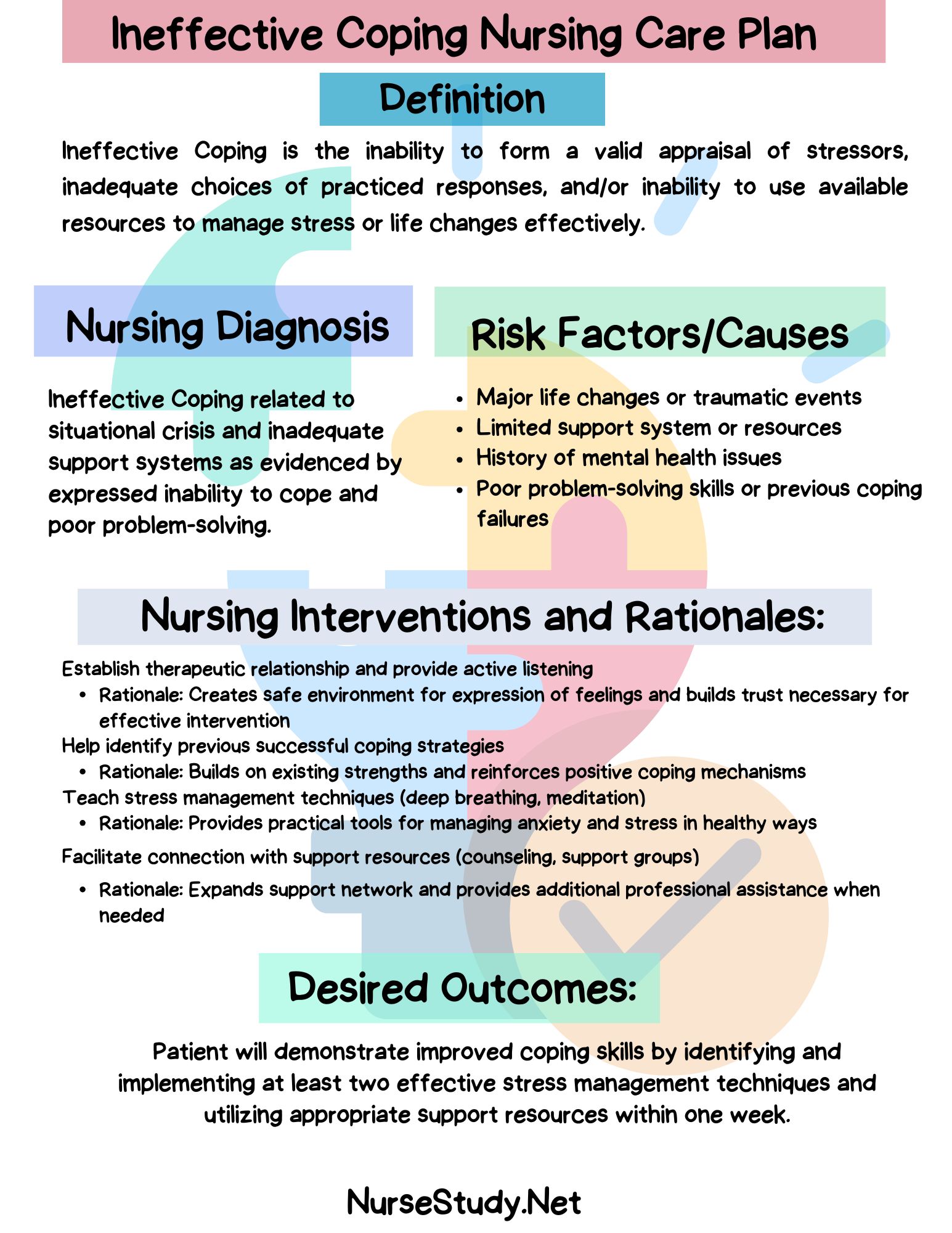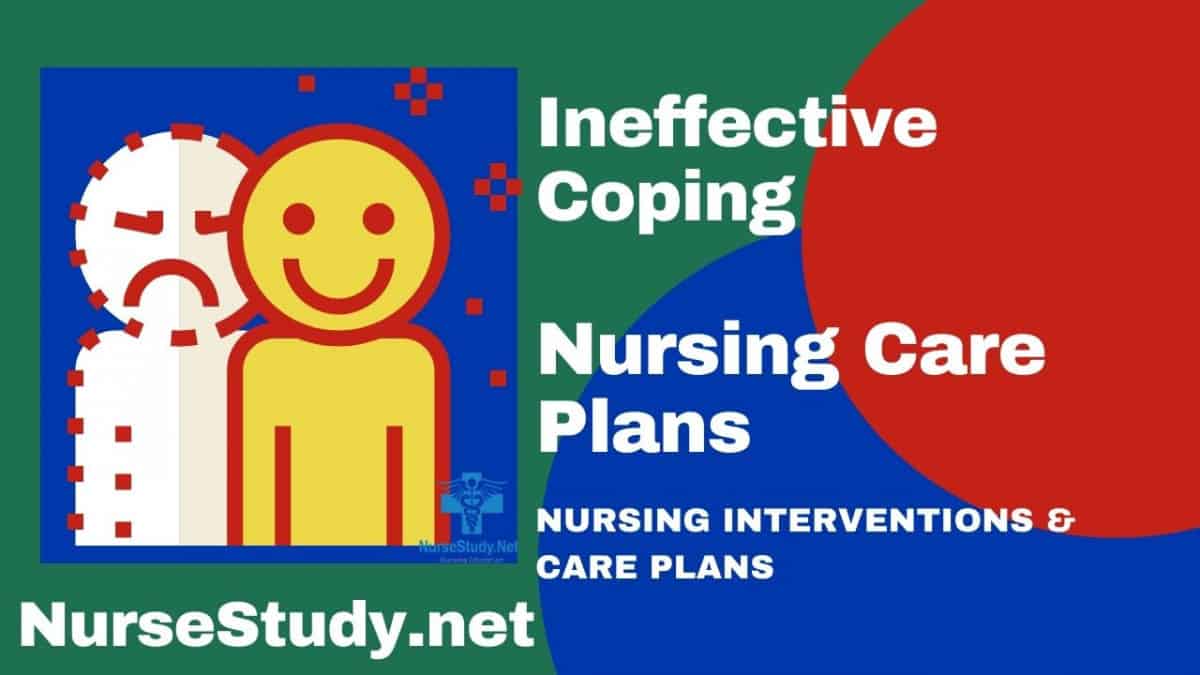Nursing Interventions For Ineffective Health Maintenance
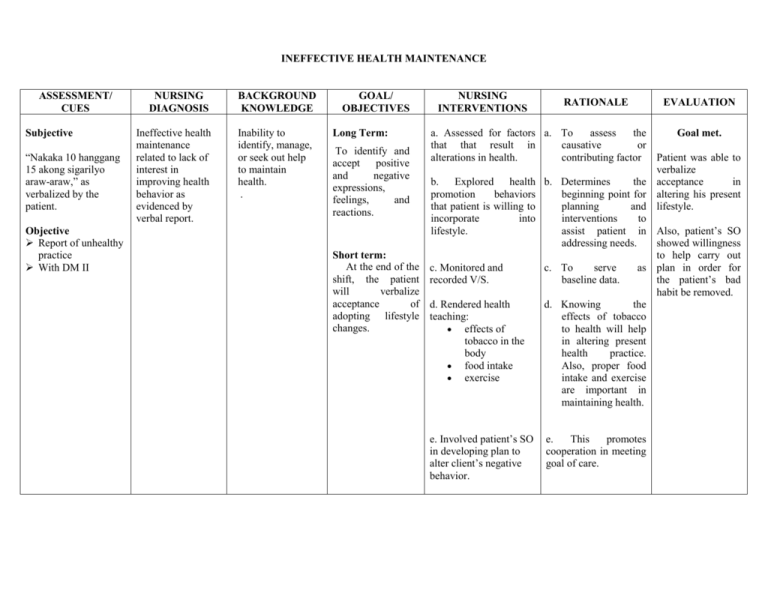
Health systems nationwide are grappling with the escalating crisis of ineffective health maintenance, leading to preventable hospitalizations and increased healthcare costs. Nurses are on the front lines, implementing critical interventions to reverse this trend and empower patients to take control of their well-being.
This article examines the vital role nurses play in addressing ineffective health maintenance, outlining evidence-based interventions and strategies to improve patient outcomes and reduce the burden on the healthcare system.
Understanding Ineffective Health Maintenance
Ineffective health maintenance, as defined by the North American Nursing Diagnosis Association (NANDA), describes the inability to identify, manage, and/or seek help to maintain health.
Factors contributing to this diagnosis include lack of knowledge, impaired cognitive or psychomotor skills, insufficient resources, and inadequate social support.
The consequences of untreated ineffective health maintenance can be severe, leading to chronic disease exacerbations, increased morbidity, and reduced quality of life.
Nursing Interventions: A Multifaceted Approach
Nurses employ a diverse range of interventions to address ineffective health maintenance, tailored to the individual needs of each patient.
These interventions focus on education, skill-building, resource provision, and motivational support.
The ultimate goal is to empower patients to become active participants in their own care.
Patient Education: The Foundation of Effective Health Maintenance
Providing comprehensive and understandable education is paramount.
Nurses educate patients on their conditions, medications, treatment plans, and lifestyle modifications required for optimal health.
This education often includes written materials, verbal instructions, and interactive teaching methods like demonstrations and return demonstrations.
Skill-Building: Empowering Self-Management
Many patients lack the necessary skills to effectively manage their health conditions.
Nurses provide training in essential skills such as medication administration, blood glucose monitoring, wound care, and proper nutrition planning.
These skill-building sessions are designed to be hands-on and patient-centered, ensuring that individuals feel confident and capable.
Resource Provision: Bridging the Gap
Access to resources is a critical determinant of health maintenance success.
Nurses connect patients with vital resources such as transportation assistance, food banks, affordable medications, and community support groups.
Navigating the healthcare system can be challenging, so nurses often act as advocates, helping patients overcome barriers to care.
Motivational Support: Fostering Adherence and Engagement
Maintaining long-term adherence to health maintenance plans requires ongoing motivation and support.
Nurses utilize motivational interviewing techniques to help patients identify their goals, explore their ambivalence, and build their confidence in their ability to change.
Regular follow-up calls, home visits, and peer support groups can provide ongoing encouragement and accountability.
Specific Examples of Nursing Interventions
For a patient with diabetes, a nurse might provide education on blood glucose monitoring, insulin administration, and healthy eating habits.
They may also connect the patient with a certified diabetes educator and a support group.
For a patient with heart failure, the nurse might teach about medication management, fluid restriction, and signs and symptoms of worsening heart failure.
They can arrange for home health visits to monitor the patient's condition and provide ongoing support.
In cases of mental health concerns, nurses can connect patients with mental health professionals, support groups, and crisis intervention services.
They can also provide education on coping mechanisms and stress management techniques.
The Impact of Effective Nursing Interventions
Studies have shown that effective nursing interventions can significantly improve patient outcomes and reduce healthcare costs.
A 2022 study published in the Journal of Nursing Scholarship found that patients who received comprehensive health maintenance education from nurses experienced fewer hospital readmissions and emergency department visits.
Furthermore, these interventions improve patient satisfaction and empowerment.
The Role of Technology
Technology is playing an increasingly important role in supporting nursing interventions for ineffective health maintenance.
Telehealth platforms allow nurses to provide remote monitoring, education, and support to patients in their homes.
Mobile apps can track vital signs, medication adherence, and lifestyle behaviors, providing valuable data to both patients and healthcare providers.
Wearable devices can monitor activity levels, sleep patterns, and other health metrics, providing insights into patients' overall well-being.
Addressing Health Disparities
It's crucial to acknowledge that health disparities significantly impact health maintenance.
Individuals from marginalized communities often face greater barriers to accessing quality healthcare, including language barriers, cultural differences, and socioeconomic challenges.
Nurses must be culturally sensitive and address these disparities by providing culturally tailored education, resources, and support.
Next Steps and Ongoing Developments
Efforts are underway to expand access to nursing interventions for ineffective health maintenance.
Healthcare organizations are implementing new models of care that prioritize preventative services and patient education.
Nurses are advocating for policies that support access to affordable healthcare and address social determinants of health.
Continued research is needed to identify the most effective interventions and strategies for improving health maintenance outcomes across diverse populations.
The crisis of ineffective health maintenance demands immediate and sustained attention. Nurses, with their expertise and dedication, are uniquely positioned to lead the charge in empowering patients to take control of their health and well-being.

